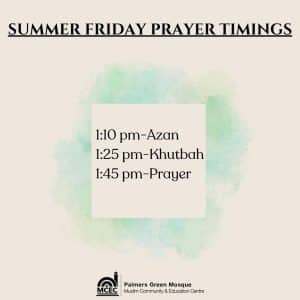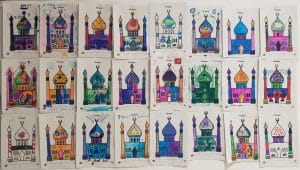
The month of Muharram is one of the four sacred months, which are Dhul-Qa’dah, Dhul-Hijjah, Muharram and Rajab. “Verily, the number of months with Allah is twelve months (in a year), so it was ordained by Allah on the Day when He created the heavens and the earth; of them, four are sacred [(i.e. the first, the seventh, the 11th and the 12 months]. That is the right religion, so wrong not yourselves therein.” [Qur’an Surah al-Tawbah 9:36]
Muharram is described as “the month of Allah” and this indicates the veneration that the month of Muharram deserves.
It has been a sacred month since time immemorial and it is one of the months that Allah sanctified.
The beginning of the Islamic record was in the era of Omar Ibn Al-Khattab when he gathered the people in the sixteenth year of the Hijrah, so he consulted them from where the record begins. From migration because migration was in which an independent entity was established for the Muslims and in it the formation of the first Islamic country.
The migration was not in the month of Muharram; it was in the month of Rabia Awal.
The Prophet (صلى الله عليه وسلم) said: (The best fasting after Ramadan is God’s month of Muharram, and the best prayer after the obligatory prayer is the night prayer) and:“The best fasting after Ramadan is the fasting of Muharram the month of Allah and the best prayer after the fard is the night prayer.”
“A man asked the Messenger of Allah! Which month do you order me to fast after the month of Ramadan?” He said: “If you will fast after the month of Ramadan, then fast Al-Muharram, for indeed it is Allah’s month in which there is a day that Allah accepted the repentance of a people, and in which He accepts the repentance of other people.”
It is highly recommended to fast as much as possible during Muharram (though fasting the whole month is reserved for Ramadan only). The Messenger of Allah (صلى الله عليه وسلم) said, ‘The best fasting after Ramadan is the Sacred Month of Allah (Muharram)’ (Muslim). Therefore Muharram is a month of fasting, repentance and divine relief.
There is no specific recommendation to pay your Zakat in Muharram and there is no prohibition to get married in Muharram.
It has the virtue of fasting Ashura, which is the tenth of Muharram.
On the authority of Ibn Abbas, he said: When the Prophet came to Medina and found the Jews fasting on the day of Ashura, the Prophet said to them: “What is this day that you fast? They said: This is a great day on which God saved Moses and his people and drowned Pharaoh and his people. So Moses fasted on it, thank you, so we fast it.” The Prophet (صلى الله عليه وسلم) said we are more deserving and more entitled of Moses than you, so the Prophet fasted and commanded his fast.)
The Prophet (صلى الله عليه وسلم) stated: “For fasting the day of Ashura, I hope that Allah will accept it as expiation for the year that went before.” We need to seize this great chance.
The tenth day of Muharram is known as the Day of Ashura. Ashura is traced as far back as the Prophet Musa (عليه السلام) and it was a Sunnah of our Prophet Muhammad (saw).
There is no connection between fasting Ashura and the martyrdom of Hussain ibn Ali (عليه السلام), the grandson of the Prophet (صلى الله عليه وسلم). It is not a month of grief or sadness.
About the Author
Dr Mohamed Ali Ahdash is MCEC Palmers Green Mosque’s, Senior Imam. He is available from Fridays to Sundays from Asr onwards. Dr Ahdash is a lawyer and an expert in Islamic studies. He is the author of Copyright in Islamic Law. He studied Law at the University of Benghazi, Libya for his first degree coupled with traditional education (IJAZA) in Islamic studies and Arabic. He then studied for a diploma degree in Islamic and Arabic Studies at the University of Tripoli, Libya. He worked as a lawyer, a researcher and a lecturer. He obtained a Master of Law from SOAS, University of London and a PhD in Islamic Law, from the University of Wales, Lampeter. His research interests include Law, Islamic studies and culture, history, and political issues of MENA.



